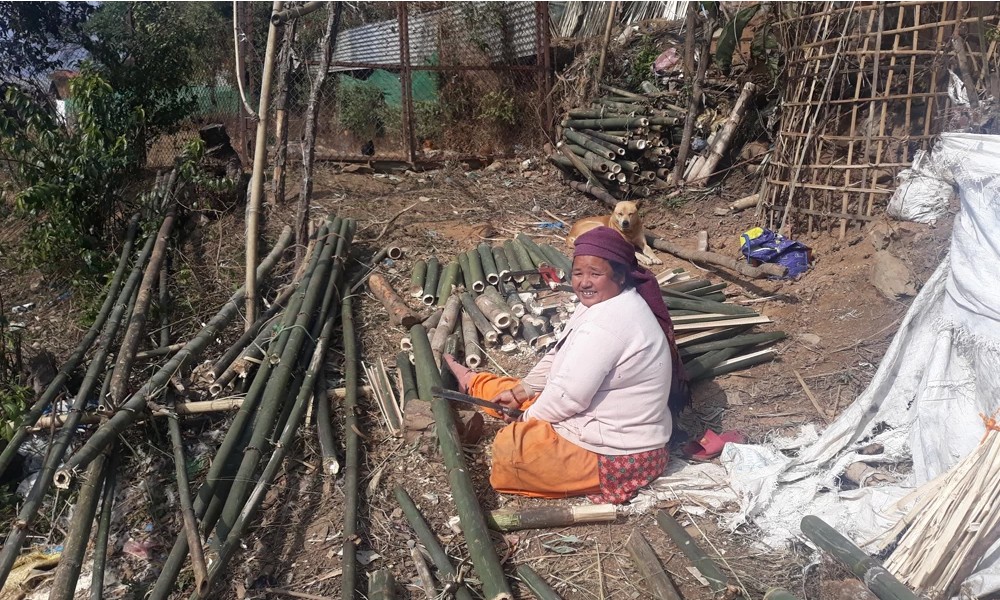The story of N-Peace award winner
All human beings are born equal-- This is how the Universal Declaration of Human Rights, adopted by the UN General Assembly in 1948, begins. It further states:--Human beings are equal in dignity and rights."
But Kushila Chaudhary was not born equal. She was a slave even before her birth. Her father was a Kamaiya, an indentured agriculture laborer, at a landlord's house in the far-western plains district of Kailalai. And she also started serving the same landlord whom her father used to work for.
Chaudhary initially worked as a bonded agriculture laborer and then as a housemaid for the first 16 years of her life. She was illiterate, blissfully unmindful of socio-political reasons behind with her slavery and never hoped for a better future.
But things changed after the government declared emancipation of Kamaiya. She no longer had to work as a Kamlari, a term used to describe housemaids often unpaid and exploited. Things got even better when she got an opportunity to attend a literacy class.
Chaudhary emerged as a role model for hundreds of ex-Kamlaris. She is now seen as an icon of struggle, hope and freedom.
Not only did she learn alphabets in the literacy class, but she also understood socio-political reasons associated with slavery and the need to rehabilitate the freed Kamlaris. That was when she embarked on an audacious journey towards helping other ex-Kamlaris whose past was as traumatized as hers.
Over the years, Chaudhary emerged as a role model for hundreds of ex-Kamlaris. She is now seen as an icon of struggle, hope and freedom.
For her tireless contribution towards empowering and rehabilitating the ex-Kamlaris, Chaudhary has been honored with this year's Asian Peace Award (N-Peace Award). Initiated by United Nations Development Programme (UNDP) in 2010, this award is conferred every year to facilitate an Asian woman involved in promoting peace and fighting conflicts in Afghanistan, Pakistan, Nepal, Myanmar, Indonesia and the Philippines.
This year, seven other women were also shortlisted for the award from the region. But she won it and is now going to New York to receive the award on 23 October 2015.
Chaudhary has been active in a campaign to free and rehabilitate Kamaiyas for the last one-and-a half-decade. She says she was motivated to take on this challenge because she was also a victim. She was forced to work for 18 hours a day. Never was she allowed to enjoy care, affection and love of her family.
Chaudhary was fortunate enough to enroll in a short-term literacy program in the late 1990s. The program was supported by an organization called Lutheran World Federation Nepal, which supported the Child Education Empowerment Programme for disadvantaged communities.
Chaudhary has been active in a campaign to free and rehabilitate Kamaiyas for the last one-and-a half-decade. She says she was motivated to take on this challenge because she was also a victim. She was forced to work for 18 hours a day. Never was she allowed to enjoy care, affection and love of her family.
The short-term course was only for 9-months. During those months, she was able to learn to read, write and do some mathematics. That was all what she got in the name of education. But she is now Chairperson of Freed-Kamaiya Women Development Forum, coordinator of Freed-Kamaiya Rehabilitation Committee, Kailali, formed by the government and Kailali and Kamaiya Pratha Unmulan Samaj, a non-government organization formed by former Kamaiyas to defend their rights and rehabilitation.
"I feel privileged to achieve this award. Despite coming from the underprivileged society, I made it," she said. "I hope the government will now realize that we (the member of bonded labor) can also bring positive changes to the country and work towards proper rehabilitation of the freed-Kamaiyas as it committed different times and occasions."
In 2000, she was only 16- year old, but in her leadership, hundreds of Kamaiyas organized sit-in-protest in front of District Administration Office, Kathmandu for 19 consecutive days, organized meetings, gatherings, rallies and ultimately the government was forced to declare 'free Kamaiya'.








